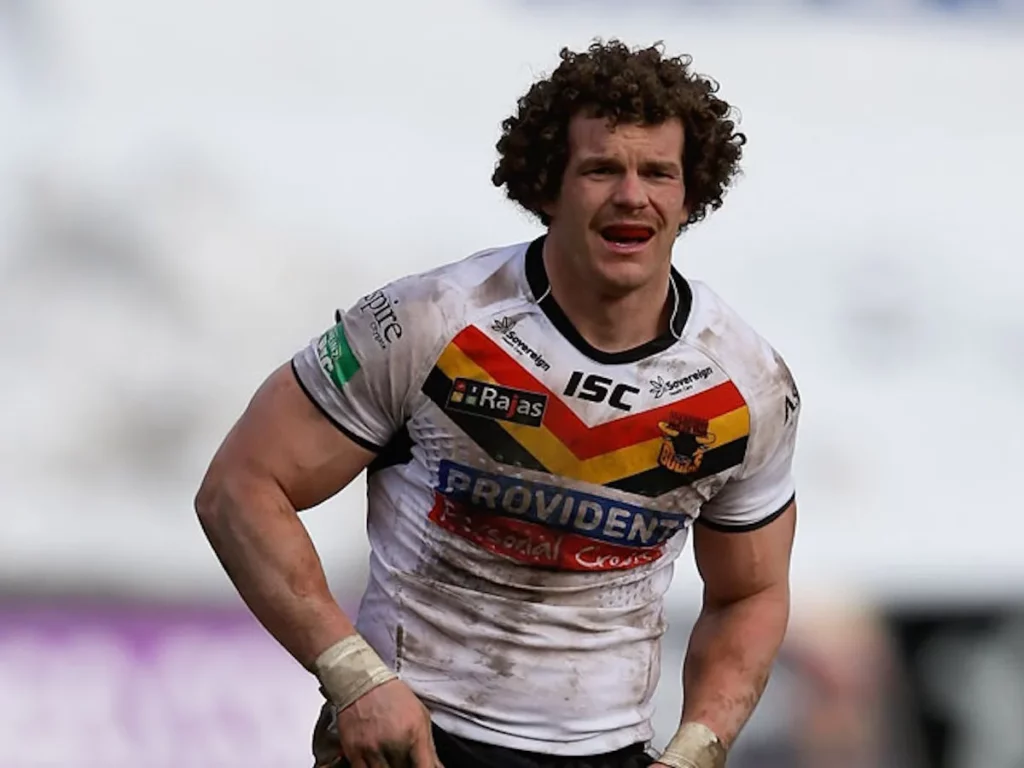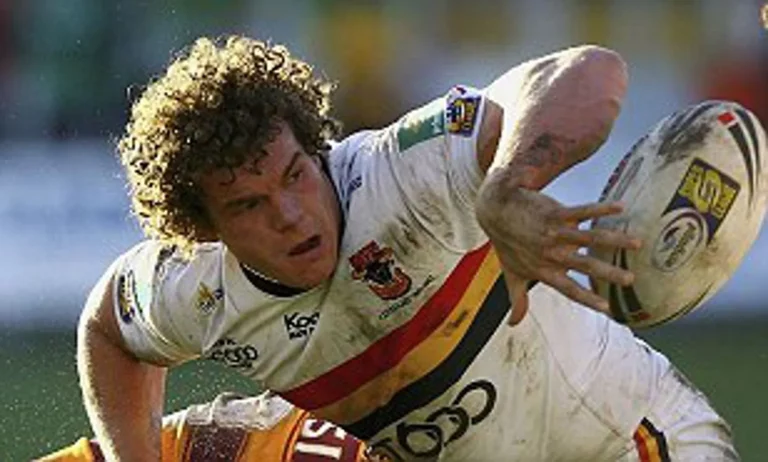#7 - Jamie Langley
Former Great Britain Rugby League Player. 256 appearances for Bradford Bulls
A former Great Britain representative, Jamie also played for England and spent 13 seasons with the Bradford Bulls, making 256 appearances. Upon leaving the Bulls in 2013, Jamie played for the Hull Kingston Rovers and the Sheffield Eagles before joining the London Broncos as Assistant Coach in 2016. Jamie has also been involved with the EPU, helping coach England Academy to a series victory over Australia in 2018. Jamie left the Broncos in May 2021 to join Premiership Rugby Union side Sale Sharks as their Peak Performance Coach. A newly-created role tasked with a more “holistic” approach to aiding players.

If you hadn’t been an athlete, what would you have gone into after school or university? And why?
If I hadn’t gone straight into professional rugby, I would have definitely had to pursue a career that involved physical activity, fresh daily challenges and the chance to work within a team.
Maybe joining the emergency services or law enforcement.
What experience or memory do you cherish most from your days of being a professional athlete?
I really enjoyed the pursuit of constantly trying to better myself. The inner competition that you wage with yourself daily, to strive for optimisation and improvement. Even if it’s just 1% here and there, that was a big personal driver for me. I believe as humans, we are all genetically programmed to pursue evolution in some way, to build, to constantly grow ourselves and this is something I really embraced as a player.
What’s one thing you’re interested in or care about that most people don’t know?
I’m always intrigued by human behaviour. Why we are the way we are, why we believe the things we do and why we behave the way we behave.
So many questions can be answered if we can look introspectively and pursue the answers to some of the above questions. In today’s world with all the distractions we have, the practice of self-reflection and contemplation is unfortunately lost to many.
The prevalence of mental health problems in elite sport is incredibly high. Why do you think that is and how can we reduce it?
So many answers to this question which could be dealt with by people much more qualified than myself.
However, I believe one of the reasons is we just aren’t equipped and educated enough on how to deal with the amount of stimulus we are confronted with in the modern world we live in. There is no user manual for the human brain, and unfortunately for a lot of people, it’s proving very difficult to manage it. Education at a younger age, on how we can manage our minds better, would definitely decrease the amount of cases we are seeing.
Careers are full of ups and downs. What caused you pain and how did you deal with it?
Injuries were the main cause for most of my unhappiness during my playing days. They prevent you from being able to pursue your passion and fully commit to the daily process of optimisation.
Reframing the event and focusing on the positives always helps with this. Look at the opportunities the setback has presented you and focus your attention on those.
And finding comfort in the notion that, as with most things, ‘this too shall pass’. Focus on the day-to-day and don’t get too caught up in the imagination of what may happen in the future.
Can you tell us about your experience of retiring and transitioning into the ‘real world’?
Towards the back end of my career I’d suffered quite a few serious injuries and had mixed results from the surgical repairs. This made it very real to me that I wasn’t going to be able to compete at the highest level for much longer. This gave me some form of inner peace, as I knew I was just unable to perform at the level I expected of myself but it’s beyond my control, and that’s ok. I then began to turn my eye to coaching as I loved the game, it’s always been my passion, and it’s what I wanted to do. So I began to map out how I could make that transition as smoothly as possible and began to plan for the next stages of my life after playing.
Reframing the event and focusing on the positives always helps with this. Look at the opportunities the setback has presented you and focus your attention on those.
And finding comfort in the notion that, as with most things, ‘this too shall pass’. Focus on the day-to-day and don’t get too caught up in the imagination of what may happen in the future.

Do you have a favourite quote or saying? Why does it resonate with you?
“Whether you think you can, or you think you can’t – you’re right,” Henry Ford
“Everything can be taken from a man but one thing: the last of the human freedoms—to choose one’s attitude in any given set of circumstances, to choose one’s own way.” Victor Frankl
“Between stimulus and response there is a space. In that space is our power to choose our response. In our response lies our growth and our freedom.” Viktor Frankl
“The most important decision we make is whether we believe we live in a friendly or hostile universe.” Albert Einstein
All these quotes highlight that the only things that are truly within our sphere of control are our thoughts and responses. Have control over these, and it can help you navigate through most of life’s challenges.
Any parting thoughts for those youngsters that might be about to embark on a pro career, those in the middle of one, or those that might be coming towards the end?
Always follow your passion and trust your gut.
Following your passion will lead you to discovering your deeper purposes.
“When you’re passionate about what you’re doing, it’s like riding a bike down-hill; it’s much more enjoyable and you get to where you’re going a lot faster! Doing something you’re not passionate about is like riding a bike up-hill; it’s not much fun and takes you a lot longer to get to where you want to go”
Finally, how can people follow what you’re up to and potentially reach out?
Email: jamie.langley@salesharks.com
Twitter: https://twitter.com/jamielangley13
